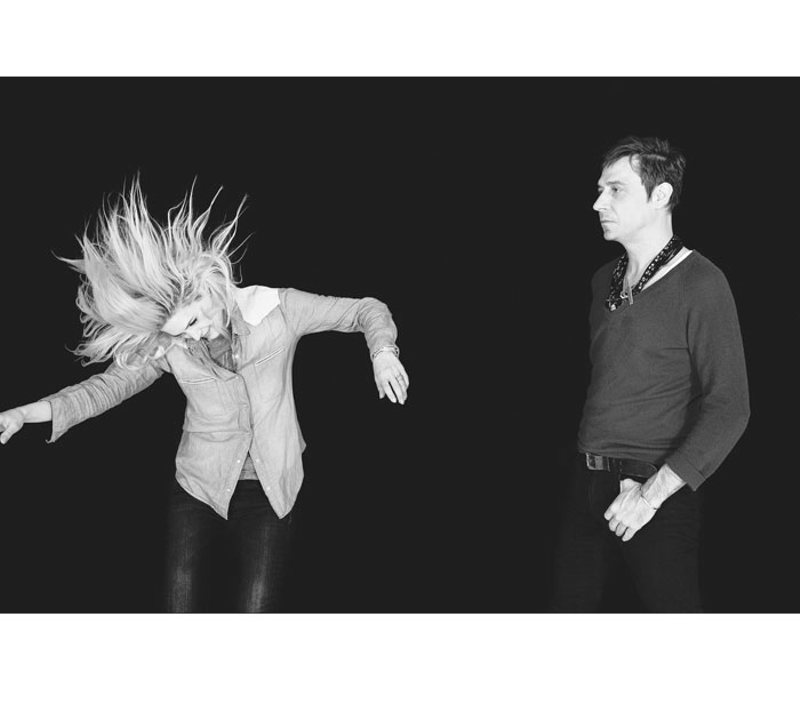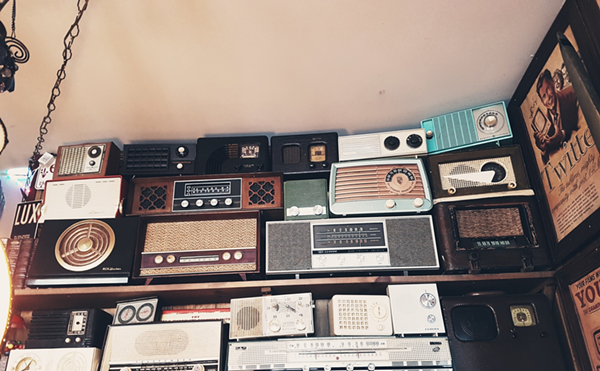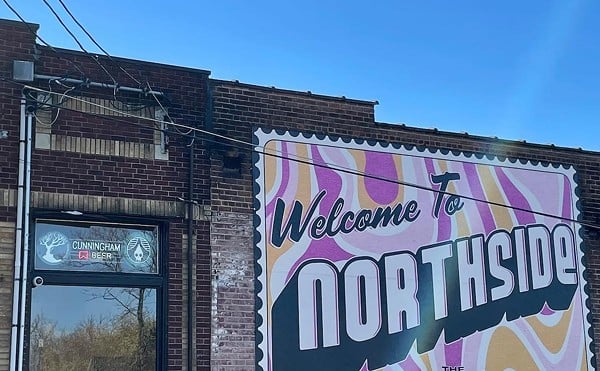
Yet in an age of cross-genre pollination and polyglot sonic concoctions, the idea of a straight-up Rock band — with a few electronic textures thrown in for extra flavoring — is almost a novelty. The new record’s gauntlet-throwing opening trio of “Doing it to Death,” “Heart of a Dog” and “Hard Habit to Break” offer up swagger to spare, each bringing to mind PJ Harvey backed by an irony-free Jon Spencer Blues Explosion.
CityBeat recently connected with Mosshart via a fuzzy cell phone connection to discuss the creation of Ash & Ice and a hand injury that not only impacted Hince’s ability to play guitar but also possibly the band’s very existence.
CityBeat: It’s been five years since the last record. That’s an eternity in today’s fast-paced cultural landscape. How does it feel to finally have the new record out there?
Alison Mosshart: We haven’t stopped working this whole time. We were playing shows in 2015, and this record came out this year. But, yes, the climate is different. How do people afford to record music? You have to go out and play. It’s a weird time where you can’t really make much money playing shows, even if you’re selling shows out. And you can’t really make any money selling music, because nobody’s buying music. It’s all a bit wacky right now. I even see a major difference between the new record and the one before it — it’s doing better, and yet it’s harder to make any money off it.
But the crowds feel incredible. The shows feel great. And from that place, from that venue, when you’re sharing that moment with audiences, it feels incredible. I’m so glad that we’re still able to do this — that we’re still making music and still performing it. I’m thankful about it every day. But it’s definitely a weird time in music. There’s no doubt about it. There’s an overabundance of things and everybody’s attention span is short.
CB: How has your creative process changed or evolved from the first record (2003’s Keep on Your Mean Side) to the new one?
AM: There are a lot of things that are very similar, and there are a lot of things that are different. Over time, you’re always hoping that you’re a better songwriter and that with the next record you will push yourself. That stuff evolves. Jamie’s skills with production and sounds and frequencies, stuff with the computer, which I don’t really have my head around, that of course changes the process.
We both bring each other the songs we write. We listen to them together. We talk about them. Jamie picks the ones he likes that I’ve written, the ones he’s excited about, and I do the same for him. We work on them; we fill in each other’s gaps. There’s a long process before we record them. We write and rewrite. We’re trying to find something different, something that might be uncomfortable or exciting that way — that we don’t quite know what we’re doing. That’s always a nice place to start. It would be pretty easy to write in the way that comes completely naturally to us, and there a lot of bands that do that that I love, but being a two-piece I think there’s more pressure to try to change as much as possible.
CB: Was there anything specific that you tried to do differently when writing or recording this one?
AM: One of the things we talked about was the lyrics, trying to find a sort of lyrical style or voice that felt honest and wasn’t hiding behind Rock & Roll clichés, which can be fun and easy to write. But we’re a little bit older and we’re constantly trying to rediscover our voice.
CB: You’re at the point where you now have a pretty significant discography from which to draw for the live shows. How do you go about crafting a cogent set list these days?
AM: You just do what feels right. We’re on tour for this record right now, so it makes sense for us to play these songs, and they’re exciting and new and fresh. It’s funny — you record a record and work on it for so long and then you take it on the road and it starts to live a completely different life. We’re just constantly discovering where the songs should go and what they should do.
CB: It seems like Jamie’s hand injury was pretty serious. His playing is an elemental part of what you guys do. What would have happened to the band if he wasn’t able to play guitar anymore?
AM: I love everything about Jamie’s guitar playing. His style is so quirky, so different, it’s so weird. Who knows what he would do if he couldn’t play guitar. He would probably produce more, use the studio as an instrument. When he hurt his hand, we were both really positive and hopeful. As gnarly as it was — the fact that he had multiple operations and that it took a really long time recover — it never seemed like it just wasn’t going to work. It seemed like we’re just going to have to be patient and work on this. He’s going to have to go through this. People injure themselves and have surgery. It happens all the time. It’s not the end of the world. But it was totally stressful, and I’m sure he had some sort of internal fear that pushed him to cover different sides to the music and do some other things. He kind of really can’t be stopped.
THE KILLS perform Sunday at Bogart’s. Tickets/more info: bogarts.com.





